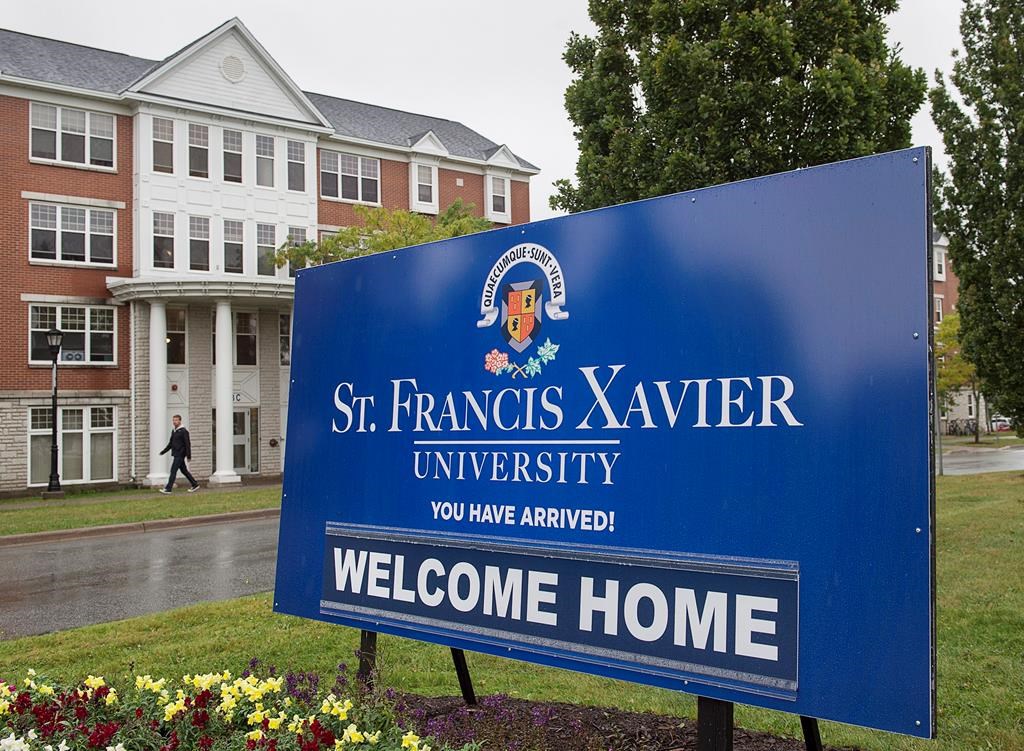At some of Canada’s smaller universities, academic life is set to resume amid the pandemic. But for many this year, the thrill of arriving on campus will be replaced by long days in a room trying to keep loneliness at bay.

Atlantic Canada’s members of the so-called Maple League of universities – Mount Allison University in Sackville, N.B., St. Francis Xavier University in Antigonish, N.S. and Acadia University in Wolfville, N.S. – are going further than larger universities in promising in-person classes this fall.
However, for the hundreds of students arriving at the schools, this means self-isolation and questions about what the year ahead will bring in terms of a second wave of COVID-19. In Atlantic Canada, students entering from outside the region must isolate for 14 days.

Jerry Ko, a fourth-year music student at St. Francis Xavier, recently emerged from the two weeks of self-isolation after arriving back in Canada from Hong Kong.
“I was quite alone, and you feel that,” he said in a telephone interview from his living room.
“On the first week it was OK not to go out. But the last seven days it’s tough. It’s so hard to not step outside the house to walk around the town.”
The 21-year-old jazz guitar student said his days consisted of five hours of practising, meal preparations and a half hour in the yard. His groceries were dropped off by his landlord and a friend. There was no in-person conversation.
- Life in the forest: How Stanley Park’s longest resident survived a changing landscape
- ‘Love at first sight’: Snow leopard at Toronto Zoo pregnant for 1st time
- Carbon rebate labelling in bank deposits fuelling confusion, minister says
- Buzz kill? Gen Z less interested in coffee than older Canadians, survey shows
In Sackville, Thorique McKenzie, a biology student, described a similar sensation of loneliness as the isolation dragged on.
“I was saying, ‘When is this over? I’m done’ …. But this is the necessary step we need to take to combat the virus,” the 21-year-old Bahamian said in an interview last week at the campus welcoming centre.
Food is brought to the room, and there are periods of outdoor time, but students are expected not to socialize in person with their classmates.
McKenzie arrived before the creation of an array of online activities were launched by the university, from Zoom dance parties to regular “soothe your soul” sessions prepared by Mount Allison’s mental health director. Administrators expect more than 180 people will be isolating in single residence rooms in the weeks to come, with a further 70 doing so off-campus.
University president Jean-Paul Boudreau says if there is an outbreak of COVID-19, a plan is in place that includes a dedicated residence for self-isolation and contact tracing by public health staff.
But he believes small universities made the correct decision in pushing ahead with in-person classes.
“We are universities that are focused on the immersive experience …. For us, opening was important, because that is what we do,” he said in an interview.
“We’re small institutions …. We can do all the really important health and safety guidelines that are more difficult in a major metropolitan operation.”
At Mount Allison, close to half of classes will be in person, with another 18 per cent involving some in-person time; at St. Francis Xavier, about 72 per cent of undergraduate courses are in person.
Acadia has about 51 per cent of its classes in a hybrid format, combining virtual learning with options for in-class elements. At Bishop’s University in Lennoxville, Que., the fourth Maple League member, about 51 per cent of classes will have an in-person option.

Last year Mount Allison had 2,200 students attending. Boudreau expects hundreds fewer this year, though the final numbers remain fluid. Other campuses in the league are making similar predictions.
As they look ahead, students who have chosen to head to campus have mixed levels of trust in the universities’ plans.
“With the guidelines we’re provided, I think we can rely on each other,” said Charlotte Hache, a third year biochemistry student at Mount Allison. “You have to wear masks, respect social distancing. I have a lot of faith in it.”
However, for Ko, being required to sign a controversial waiver created by St. Francis Xavier’s administration has not been a confidence booster.
The waiver says no claim can be made against the university even in the event of “negligence, breach of contract, or breach of any statutory or other duty of care,” including the university failing to “take reasonable steps to safeguard or protect” the student from COVID-19 risks.
“People are saying to sign it but to state you are doing it under protest …. The school didn’t give us a good impression by this,” he said last week.
While he feels the music department will be safe, he is less confident about the campus as a whole.
“From my past experience in the residence, there are a lot of parties and nobody really cared, even though a lot of crazy stuff happens,” he said.
A St. Francis Xavier spokesman said the university has been working with provincial public health authorities to ensure its plans meet thresholds required for a safe return to campus.
Kyler Bell said in an email that the board of governors had considered student objections to the waiver but decided the document was “a necessity” if students were to return this fall.
“If, at any time, our plans are considered not safe by public health, we will not proceed,” he wrote.
This report by The Canadian Press was first published Aug. 16, 2020.



Comments